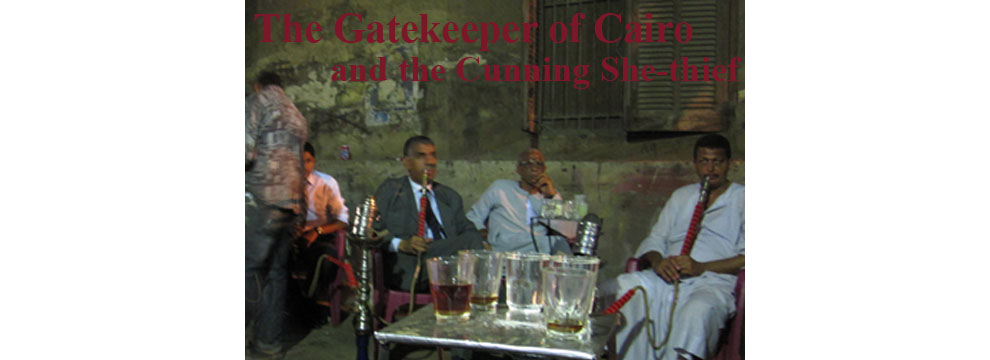Here is another interesting article on the current political situation in Egypt. Walter Armbrust is right to point out that a Muslim Brotherhood boycott of the elections would be both a political earthquake - a recent article states that there are members in the Muslim Brotherhood ranks who are calling for a boycott. However, it remains a very unlikely event given the fact that the Muslim Brotherhood likes its position as the primary opposition movement in Egypt. But if you are into revolutionary change, you can hope!
The article also does a good job of touching on the economic situation in Egypt. The country has certainly moved far from the socialist model put in place by Nasser. Whereas in Syria health services are still largely subsidized by the government, the prerogative of the Egyptian upper class to accumulate more wealth triumphed over the right of Egypt's poor to affordable health care. The rich continue to get rich and the poor continue to hassle American students for tips since that is, for them, the easiest way to make ends meet (so much easier than demanding a fair wage). Sometimes I hope that I am doing my part to support the reform of this political system when I do not give baksheesh (tips) EVERY time it is demanded by a police officer for helping me use a broken ATM. My hope is that he will instead turn to the government and demand a living wage. In some ways it would even make economic sense for the government to pursue such a policy because: 1) If it had some idea of what people were actually earning, it might actually be able to tax income; 2) If tourists did not feel so harassed in Egypt, tourism to Egypt might actually increase. This is greatly needed since the Egyptian economy is almost solely dependent on remittances from the Gulf, US aid, Suez Canal $ and tourism.
This article also got me thinking about authoritarian economics. What is the best economic policy for an authoritarian regime to pursue? If everyone is getting free health care and a free education, will they start to demand more? If the economic disparity becomes more obvious, will people start to demand more? Is the neoliberal business agenda of the NDP one tatic for the perpetuation of the NDP's power or is it simply a "get rich fast" scheme?
Sunday, October 3, 2010
Friday, October 1, 2010
Arabic Lit
Just wanted to share this list of great Arabic lit in translation for anyone looking for a new book to read. I have not read many of the books on this list yet, but I am challenging myself to read most of them in Arabic by the end of the year (it helps that we have to read an Arabic novel every weekend). For anyone interested, I recommend Season of Migration to the North. I really loved it when I read it in English this summer and am looking forward to reading it again in Arabic later this semester.
Wednesday, September 15, 2010
It has been a long time since I had a chance to write. Lev and I were traveling in Europe for all of August and then trying to recover from the trip for the last two weeks! We had a great trip and made plans to live in many other foreign cities in the near and far future. One of the most interesting parts of our trip was returning to Syria after our summer in Cairo. I wasn't sure how noticeable the differences between the two countries would be; I figured the craziness that characterizes the Cairene streets would have its Damascene equivalent. But it did not. The streets in Damascus were spotless and the microbuses ran like clockwork. I walked on the sidewalks and no one stared at me obscenely or otherwise. And generally people seemed happier and healthier. It seems more and more to me that these superficial signs can be read as signals of the health of the regime. Yes, in both countries the military is the strongest institution; however, whereas in Syria the officers stand on most corners in clean, smart uniforms, seemingly ready for anything, in Egypt they sit slumped inside their post or car waiting for the shift to end. Or, as another example, the street sweepers in Damascus actually sweep. The Syrian regime has truly been able to reach down into the society and regulate the various levels and going-ons of Syrian society. Unlike in Egypt, where everyday you have to ask yourself how it is possible for things to continue as they do, Syria does not feel like it is on the edge of some unknown change or implosion.
Looking ahead: Will Mubarak run in the next elections or will his son take his place at the head of the National Democratic Party? Will the Muslim Brotherhood participate or boycott and will their choice have any impact on the country's internal politics?
Looking ahead: Will Mubarak run in the next elections or will his son take his place at the head of the National Democratic Party? Will the Muslim Brotherhood participate or boycott and will their choice have any impact on the country's internal politics?
Monday, July 12, 2010
Tuesday, July 6, 2010
Night view of Cairo
Subscribe to:
Posts (Atom)







